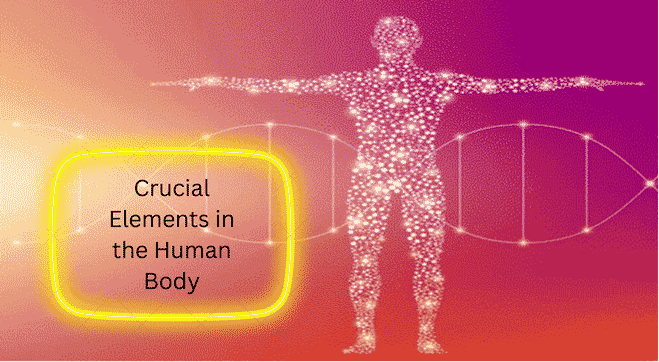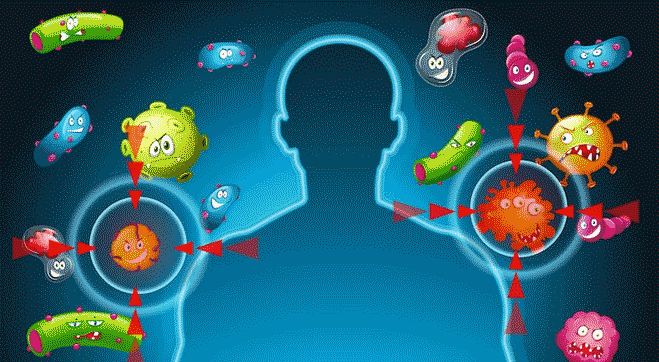Discover the captivating truth behind an age-old saying that has captured the hearts of many. Have you ever wondered what it truly means when we say “we are all made of stardust“? It’s a powerful statement that holds both emotional and scientific significance. In simple terms, it refers to the fact that dust and ash consist of a basic element called carbon, and astonishingly, so does our body.
Our bodies are primarily composed of water, an essential element for life. This life-sustaining liquid consists of two major elements: hydrogen and oxygen. It’s a fascinating reminder of the fundamental components that keep us alive.
From the breathtaking oxygen that fills our lungs to the fundamental carbon forming the backbone of life, these elements serve as the invisible architects of our reality.
Join us as we unravel the interplay of these essential elements
What are Essential Elements?
Elements are essential units that are the basic constituents of all living and non-living beings. They are the core of the universe. Every tiny or huge particle comprises of elements. Our body is built up of five primary elements: Carbon, Hydrogen, Oxygen, Nitrogen, and calcium. Apart from these elements, there are some more elements that play a crucial role in the physiological system.
Have you ever wondered how your brain works or how all the messages and actions are so well coordinated and smoothly communicated? It includes the involvement of two more elements, sodium and potassium which are present in 0.14% and 0.20% of the total respectively, but your brain will never think without these two.
Our heart, the most vital organ of our body, pumps blood and the central element of blood is iron whose major function is to bond up with oxygen and circulate in the entire body to keep all the cells of the body alive. You would be amazed to know that iron constitutes only 0.01% of the body.
Could you imagine standing up or sitting down if you did not have a body frame? Calcium and phosphorus, two essential elements, though low in concentration (1.42% and 1.11% respectively), play a major role in building up our bones and teeth.
Above all, the continuity of life which is made possible by the genetic material, our DNA, itself constitutes the elements like carbon, hydrogen, oxygen, and nitrogen.
What are Nutritional Elements?
Amongst the three basic necessities of humans, food, clothing, and shelter, food is the major and foremost need of living beings to survive. Apart from the six major components of a diet (vitamins, proteins, carbohydrates, fats, fiber, and water), minerals are also an important component of a balanced diet. These minerals are nothing else but the elements required in trace amounts. food is the prime source of mineral uptake.
World Health Organization (WHO) recommends 13 trace or minor elements in the daily dietary menu and besides these, there are 7 major elements that should be taken up in large amounts to maintain the homeostasis of our body.
|
Minor or Trace Elements |
Major Elements |
|
Boron |
Calcium |
|
Chromium |
Phosphorus |
|
Cobalt |
Potassium |
|
Copper |
Sulfur |
|
lodine |
Sodium |
|
Iron |
Chlorine |
|
Manganese |
Magnesium |
|
Molybdenum |
|
|
Nickel |
|
|
Selenium |
|
|
Silicon |
|
|
Vanadium |
|
|
Zinc |
What are Toxic Elements?
Chemical substances known as toxic elements have the potential to harm living things when they are present in excessive concentrations or when exposed to them. These substances have the ability to interfere with regular physiological functions and have a number of harmful impacts on health. Some well-known hazardous substances include:
|
Toxic Elements |
Sources of Exposure |
Health Effects |
|
Lead |
Lead-based paints, contaminated water, certain products |
Developmental delays, learning difficulties, neurological damage |
|
Mercury |
Fish and seafood, environmental contamination, certain products |
Neurological damage, cognitive impairment, kidney and immune system damage |
|
Arsenic |
Naturally occurring in soil and water, industrial processes, certain foods |
Increased risk of cancer, skin lesions, cardiovascular issues, developmental problems |
|
Cadmium |
Industrial workplaces, cigarette smoke, certain foods |
Kidney, lung, and bone damage |
|
Aluminum |
Food additives, antacids, cookware |
Linked to neurological disorders, such as Alzheimer’s disease |
|
Chromium |
Certain industrial processes, metal alloys, certain products |
Carcinogenic effects, increased risk of respiratory diseases |
|
Nickel |
Metal alloys, jewelry, industrial processes |
Skin allergies, respiratory problems |
Why are Elements Important For Life?
Discover the essential elements that help our body grow. Calcium, iron, magnesium, and zinc play a vital role in fueling the growth processes of our body. Learn how these elements are important for life.
- Essential elements form the foundation of life, serving as the building blocks of all matter.
- Chemical reactions and vital cellular processes are made possible by elements, which are critical in biological processes.
- These substances play a role in the synthesis of essential compounds such as proteins, carbohydrates, lipids, and nucleic acids.
- Essential element imbalances or deficiencies can interfere with a person’s body’s regular functioning and cause a number of health problems.
- The growth, metabolism, and other physiological processes that sustain an organism’s overall health and well-being depend on elements.
Essential Elements in Everyday Life:
Discover the vital elements shaping our existence. From carbon’s diversity to oxygen’s breath, hydrogen’s potential, and nitrogen’s nurturing, explore the significance and importance of elements in our daily life.
- Carbon: The Foundation of Life’s Diversity
Found in organic compounds, carbon forms the basis of life’s diversity. It is present in food, fuels, plastics, and fabrics.
- Oxygen: The Breath of Life
Essential for respiration, oxygen fuels the energy production in our cells and supports combustion.
- Hydrogen: The Lightest Element
Combining with oxygen to form water, hydrogen is crucial for sustaining life. It also holds potential as a clean energy source.
- Nitrogen: Nurturing Life and Enriching the Soil
Important for plant growth, nitrogen is a key component of proteins and is commonly used as fertilizer.
How Do Essential Elements Shape Biomolecules? Unraveling Their Role and Dietary Sources
One of the primary ways we obtain essential elements is through the foods we consume. A balanced diet rich in a variety of fruits, vegetables, whole grains, lean proteins, and dairy products ensures an adequate intake of these elements. Let’s explore the key elements and their roles in the composition of biomolecules.
|
Biomolecule |
Essential Elements |
Sources of Elements |
|
Proteins |
Nitrogen Carbon, Hydrogen, Oxygen |
Protein-rich foods |
|
Carbohydrates |
Carbon, Hydrogen, Oxygen |
Fruits, vegetables, grains |
|
Lipids |
Carbon, Hydrogen, Oxygen |
Various food sources, including carbohydrates |
|
Minerals |
Calcium, Phosphorus, Magnesium, |
Dairy products, leafy greens, nuts |
|
Trace Elements |
Iron, Zinc |
Meats, seafood, legumes |
How Do Imbalances or Deficiencies in Essential Elements Affect Human Health?
Human health and well-being are significantly impacted by imbalances or deficits in vital elements. These are some of the main effects:
- Calcium: A deficiency of calcium can weaken bones, putting people at greater risk of fractures and osteoporosis. The function of the muscles and nerves is also impacted.
- Iron: Anaemia, which is brought on by an iron deficiency and manifests as weariness, weakness, and cognitive impairment. For the body to transport oxygen, iron is necessary.
- Iodine: Low iodine intake causes thyroid conditions such as hypothyroidism and goiter, which affect growth and metabolism.
- Vitamin D: A lack of vitamin D impairs the body’s ability to absorb calcium, weakening bones, increasing the risk of fractures, and contributing to disorders like rickets.
- Magnesium: Low magnesium levels can lead to heart problems, muscle cramps, and sluggish glucose metabolism.
- Zinc: A zinc shortage impairs the immune system, increasing the risk of infections, delaying the healing of wounds, and impairing growth.
A balanced diet full of important nutrients is necessary for achieving and maintaining good health. Deficiencies can be addressed with regular at-home lab testing and the right supplements, reestablishing the delicate equilibrium required for total well-being.
Amazing Facts: You Didn’t Knew
- Lead: Lead toxicity is responsible for 63.8% of intellectual disability, 3% of ischaemic heart disease, and 3.1% of stroke, worldwide.
- Arsenic: 1.4 crore people across 50 different countries drink water containing high arsenic levels.
- Mercury: In fishing populations, 17 out of 1000 children consume fish containing mercury resulting in mental retardation.
- Aluminum: Aluminium exposure remains a prominent risk factor for the occurrence of Alzheimer’s disease, World Health Organization (WHO).
- Fluorine: Excess fluoride levels in drinking water lead to dental and skeletal fluorosis in crores of people.
- Tin: Canned food contains much higher levels of Tin as compared to unprocessed foods.
- Antimony: The International Agency for Research on Cancer classifies antimony trioxide as carcinogenic to humans.
- Calcium: Hypercalcemia accounts for 2% of all cancer cases whereas hypocalcemia causes bone deformation.
- Magnesium: Adequate levels of magnesium are known to prevent multiple neurological disorders. 84% of menopausal women show magnesium deficiency.
- Iron: Low levels of iron is observed in one-third of the global population. High iron intake triggers Parkinson’s disease.
- Zinc: Zinc prevents oxidative stress and thus, protects cells from damage due to free radicals. 50% of people fall under the risk of zinc deficiency worldwide.
Sources
Ref Links:
- https://en.wikipedia.org/wiki/Composition_of_the_human_body#:~:text=About%2099%25%20of%20the%20mass,11%20are%20necessary%20for%20life.










